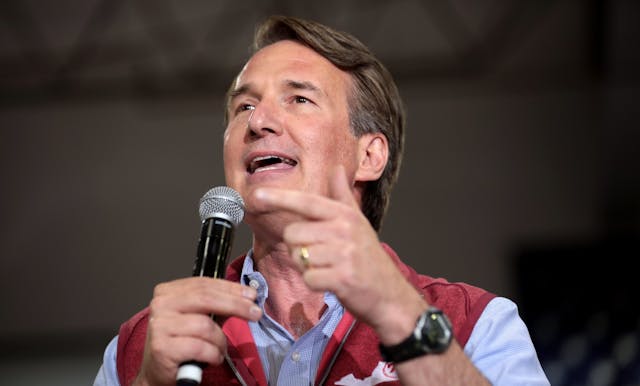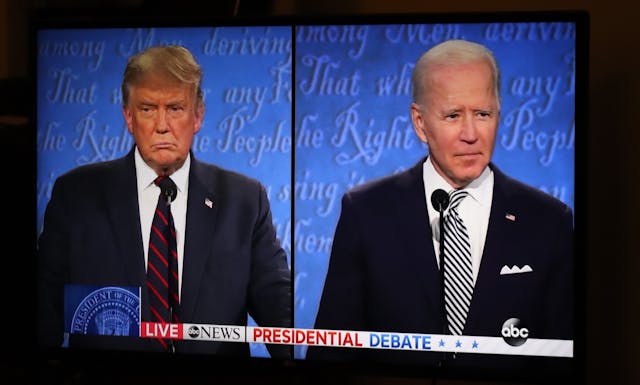Despite Occasional Lip Service, Military and Veterans Mostly Snubbed by Presidential Campaigns

In this contentious election, there is a group of voters whose concerns are going largely unaddressed: military service members, veterans, and their families. While both major party candidates' websites lay out vague plans to deal with ongoing problems at the VA as well as their foreign policy agendas, neither is directly addressing other issues that are of paramount concern to military families.
Third party candidates aren't much better, but they have been slightly more forthcoming than Trump or Clinton. Consider that there are more than 44 million military and veteran voters and they have one of the highest turnout rates of any voting demographic. In the 2012 election, 70 percent of military and veteran voters cast ballots, compared to 57.5 percent of voters in the general population. Candidates ignore these voters at their own peril.
According to a survey by the First Command Financial Behaviors Index, the most pressing concerns that service members and their families face are sequestration, the preservation of retirement benefits, and future defense spending.
In addition to annual pay raises that don't even meet the increase in the cost of living, many career military members who have served for more than a decade, often with multiple combat tours, face losing what is potentially hundreds of thousands of dollars with the overhaul of the retirement benefit system in 2018.
Defense spending determines the other benefits that military families depend upon, such as commissaries and Tricare, the military's health insurance program. Families have seen their out-of-pocket costs soar as a result of cuts to these programs, so it makes sense that military families are worried. In particular, co-pays and prescription costs have skyrocketed in recent years, increasing 400 percent or more in some cases in the last 10 years. All while receiving less than a 2 percent yearly pay raise.
"The notable gaps between military and civilian voters on these important national issues underscore the continuing financial uncertainty and concern being experienced by America's career service member families," said Scott Spiker, CEO of First Command. "Defense spending, sequestration, and the new military retirement are uniquely personal issues for those who have made the military their career."
Both Trump and Clinton have made non-specific comments regarding the elimination of the mandatory cuts associated with sequestration, yet neither has been forthcoming about how they plan to do this. According to reports, Mr. Trump plans to return the military to its pre-sequestration level, which would be good news for military families, as it would give them a degree of security in an otherwise insecure world. However, how he plans to pay for that restoration is unknown.
"Hillary Clinton is the Secretary of the Status Quo," Trump says. In this instance, and in her own words, he is correct.
According to her website, Mrs. Clinton plans to continue with more of the same cuts that have been causing hardships for the last several years by prioritizing "defense reform initiatives, curbing runaway cost growth in areas like health care and acquisition and stretching every dollar." The site does not give further details.
Libertarian candidate Gary Johnson, who is ironically polling strongly with military members, has not really addressed what he plans to do about sequestration, except to slam those on the left and the right for their views, and his voting record shows he does not support a strong military, favoring budget cuts and cut and run policies.
Independent candidate Evan McMullin also does not address these issues on his website, except to say that spending at the Pentagon needs to be reformed.
Mrs. Clinton's website pays lip service to veterans and she promises that she will reform the VA; however, once again, it's more of the continued policies of the Obama administration, which have proven ineffective.
Veterans are still facing extremely long wait times for appointments and disability claims are going unprocessed or fraudulently denied. When a veteran is in pain and can get no help from the people who are supposed to help, suicide often feels like the only option. Currently, 22 veterans a day commit suicide.
In comparison, Mr. Trump, Mr. Johnson and Mr. McMullin have laid out plans for reforming the VA. Each candidate makes a compelling case for VA reform and offers promising suggestions. However, how they plan to pay for those changes is, once again, unclear.
Photo Credit: Rafiq Maqbool / AP



